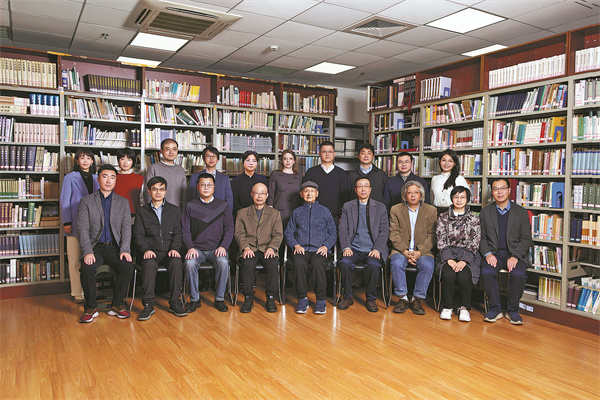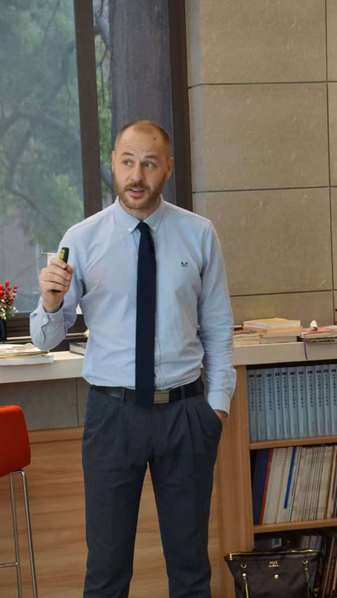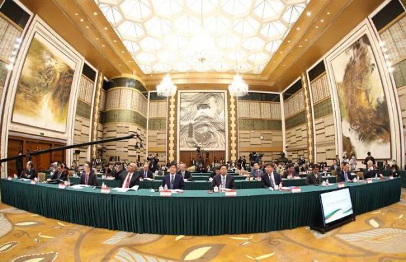

The 4thExchange Mechanism Conference of CPEC (China Pakistan Economic Corridor) Consortium of Universities was held on October 15. Two venues were set up for the Conference, respectively in Peking University and National University of Sciences and Technology of Pakistan. China-Pakistan Higher Education Research Institute was launched during this Conference, with theAnnual Report on CPEC Consortium of Universities (2019-2020)released as well.
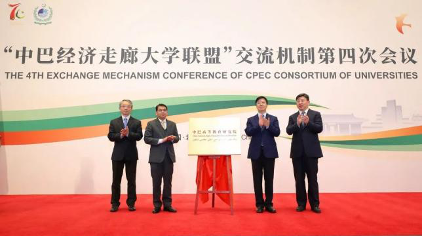
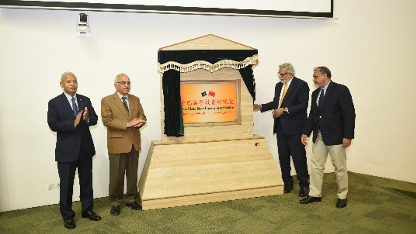
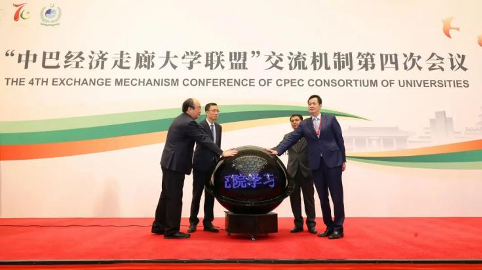
China-Pakistan Higher Education Research Institute was launched.
Vice President of Fudan University Chen Zhimin and Director General of CPEC Safdar Ali Shah reviewed the previous exchanges and cooperation between the two countries during 2019-2020 on behalf of the Chinese Secretariat and Pakistani Secretariat of the Consortium respectively.
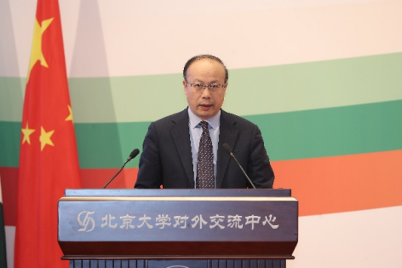
Chen Zhimin
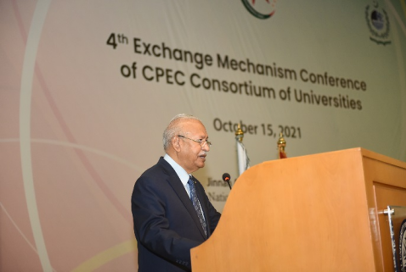
Safdar Ali Shah
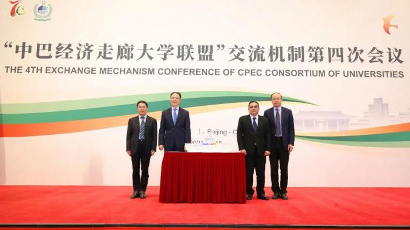
Annual Report on CPEC Consortium of Universities (2019-2020) was released.
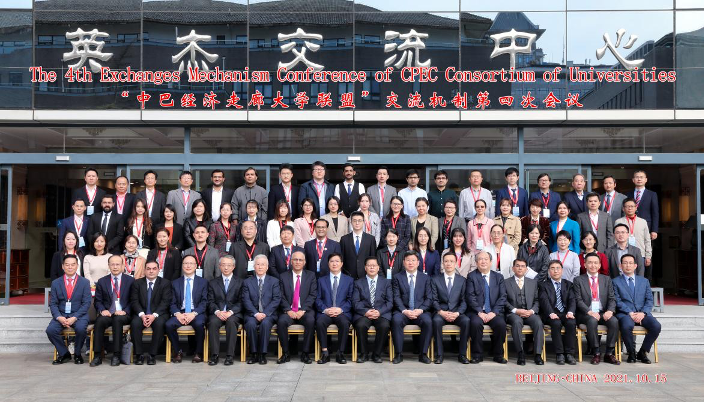
CPEC Consortium of Universities was founded in 2017 at Fudan University, under the auspices of the Higher Education Commission of Pakistan and China Association of Higher Education. Its mission is to promote academic exchanges between Chinese and Pakistani universities for the high-quality development of CPEC.
As the co-sponsors and the steering organizations of the consortium, the two associations work with government agencies and member universities in their own countries for project implementation. The Chinese Secretariat is hosted by Fudan University, and the Pakistani Secretariat by Pakistan Higher Education Commission. There are now 83 member universities in the Consortium, growing from 18 over the last four years;22 of them are from China and 61 from Pakistan.
Fruitful results have been achieved in education, joint research and faculty exchanges over the past years. The increased people-to-people exchanges and research cooperation are signs of the sustainable relationship between the higher education institutions of the two countries.
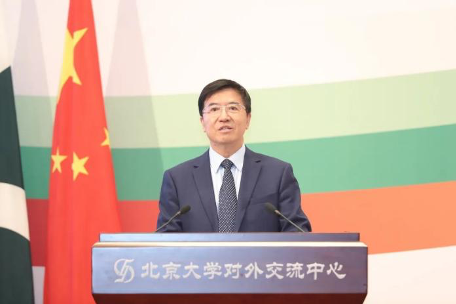
Du Yubo, chair of China Association of Higher Education (CAHE), said it is of great significance to hold this Conference on the occasion of the 70th anniversary of the establishment of diplomatic ties between China and Pakistan. After four years of development, the exchange mechanism has become an important platform for exchanges and cooperation between China and Pakistan in the field of higher education, and fruitful results have been achieved in academic exchanges, research cooperation and talent fostering. We need to make greater contributions to building an even closer-knit China-Pakistan community with a shared future in the new era by promoting targeted cooperation in key areas, enhancing the development of technology-enabled learning, boosting people-to-people and cultural exchanges that benefit people's lives, and advancing education through university-industry collaborations.
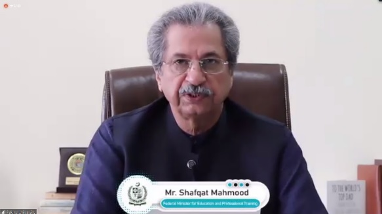
Shafqat Mahmood, federal minister of Federal Education and Professional Training, said the Conference witnessed the friendly cooperation between China and Pakistan, as well as the iconic program for promoting people-to-people and cultural exchanges under CPEC. It testifies to the friendly and equal cultural and academic exchanges between countries with different cultural backgrounds. Mahmood also expressed gratitude to the Chinese government and colleagues for their support for Pakistan’s economic and social development, hoping that Pakistan could enjoy more benefit from CPEC through the deepening bilateral exchanges and cooperation in higher education.
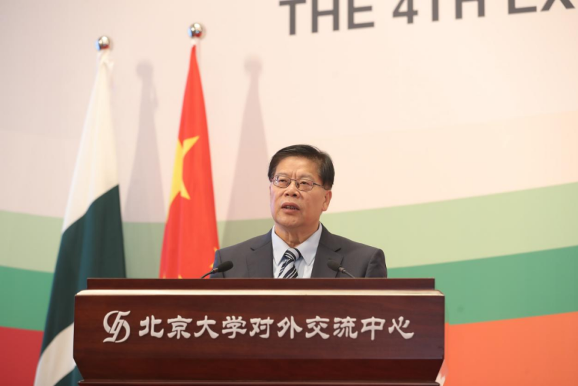
Qiu Shuiping, president of Peking University, pointed out China-Pakistan friendship has long been deeply rooted in the hearts of the Chinese and Pakistani people. Peking University has forged a bond with Pakistan and made contributions to promoting humanities education and academic exchanges between China and Pakistan. He hoped that through this meeting, the academic circles of China and Pakistan would build consensus on some important theories and practical issues, promote the ideal of peace, rationality, inclusiveness and mutual trust, and join hands to create a better future for people-to-people and cultural exchanges.

Shu Wei, secretary of the Secretariat of China Association for Science and Technology (CAST), said that the mechanism has become one of the demonstration activities of all-rounded cooperation between China and Pakistan. CAHE, affiliated to CAST, has played an active role in promoting exchanges and cooperation between China and foreign countries in the field of higher education to boost the development of technology and education. CAST will further support in-depth exchanges and cooperation between CAHE and Pakistani counterparts. It is hoped that CAHE will deepen the ties between researchers and teaching staff of the two countries to better serve the construction of the CPEC and facilitate innovation.
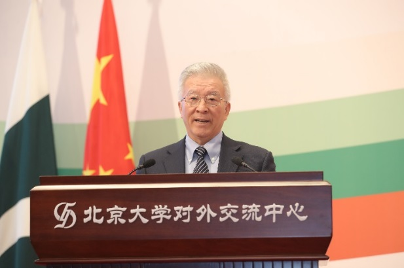
Guan Peijun, deputy director of CAHE, moderated the Conference.
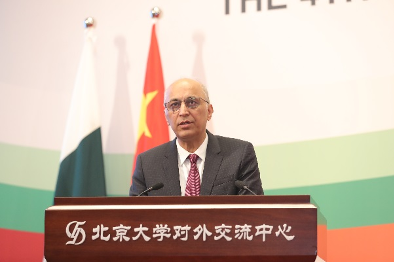
Moin ul Haque, Pakistani ambassador to China, said that this year marks the 70th anniversary of the establishment of diplomatic ties between China and Pakistan, and higher education cooperation has become an important part of our cooperation in recent years, hoping that the mechanism will promote China-Pakistan research cooperation in history, culture and languages to enhance the understanding of China’s economic development, making contribution to the development of CPEC.
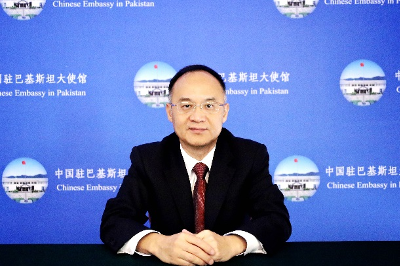
Nong Rong, Chinese ambassador to Pakistan, pointed out that the two countries have established a unique “All-weather Strategic Partnership” since the establishment of diplomatic ties 70 years ago. CPEC has promoted the continuous expansion of exchanges and cooperation in higher education between the two countries, and this conference is a new milestone in China-Pakistan higher education exchanges and cooperation, which will inject new impetus into the future development of CPEC Consortium of Universities. The Chinese Embassy in Pakistan will continue to support China-Pakistan educational exchanges and cooperation.
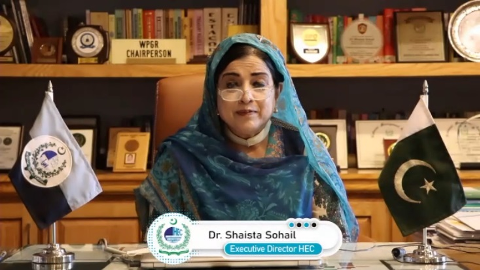
Shaista Sohail, executive director of Pakistan Higher Education Commission, said that within the framework of CPEC Consortium of Universities, people-to-people and cultural exchanges between the two countries have continued to expand in depth and breadth. The six China Studies Centers and the China-Pakistan Institute of Higher Education, etc., will provide more exchange opportunities for students and teachers of the two countries.
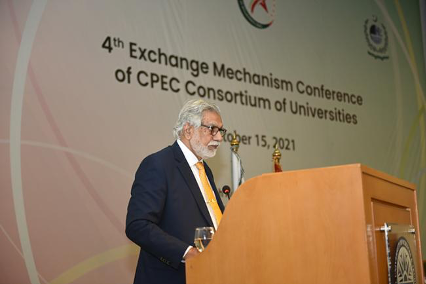
Muhammad Asghar, former president of National University of Sciences & Technology, pointed out the Consortium has carried out a great deal of work in personnel training, joint academic projects and joint laboratories since its establishment. We hope to deepen and expand cooperation in agricultural activities, rural economy, energy security and exploration of mineral resources, high-tech and digital economy, human resources and innovation.
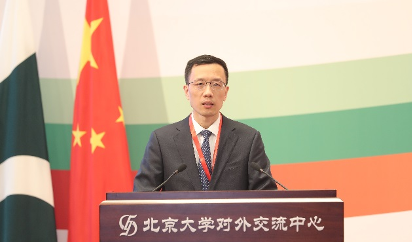
Chen Feng, counselor of Department of Asian Affairs, Ministry of Foreign Affairs of China, said that the Consortium has provided strong intellectual support for the CPEC. We should give full play to the Consortium to deepen exchanges and research cooperation between the universities and encourage high-level dialogues.
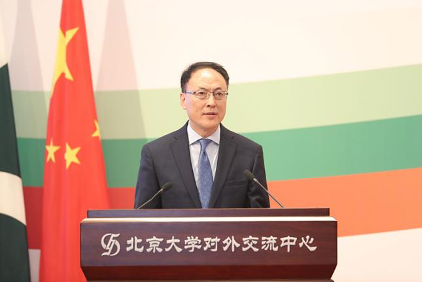
Fangjun, deputy director-general of Department of International Cooperation and Exchanges, Ministry of Education of China, pointed out we need to foster closer and higher-quality educational exchanges and cooperation, strengthen solidarity and coordination, further pool the strength of educational organizations in the two countries, and give full play to the role of the Consortium in intellectual support.
Presented by Fudan University Media Center



